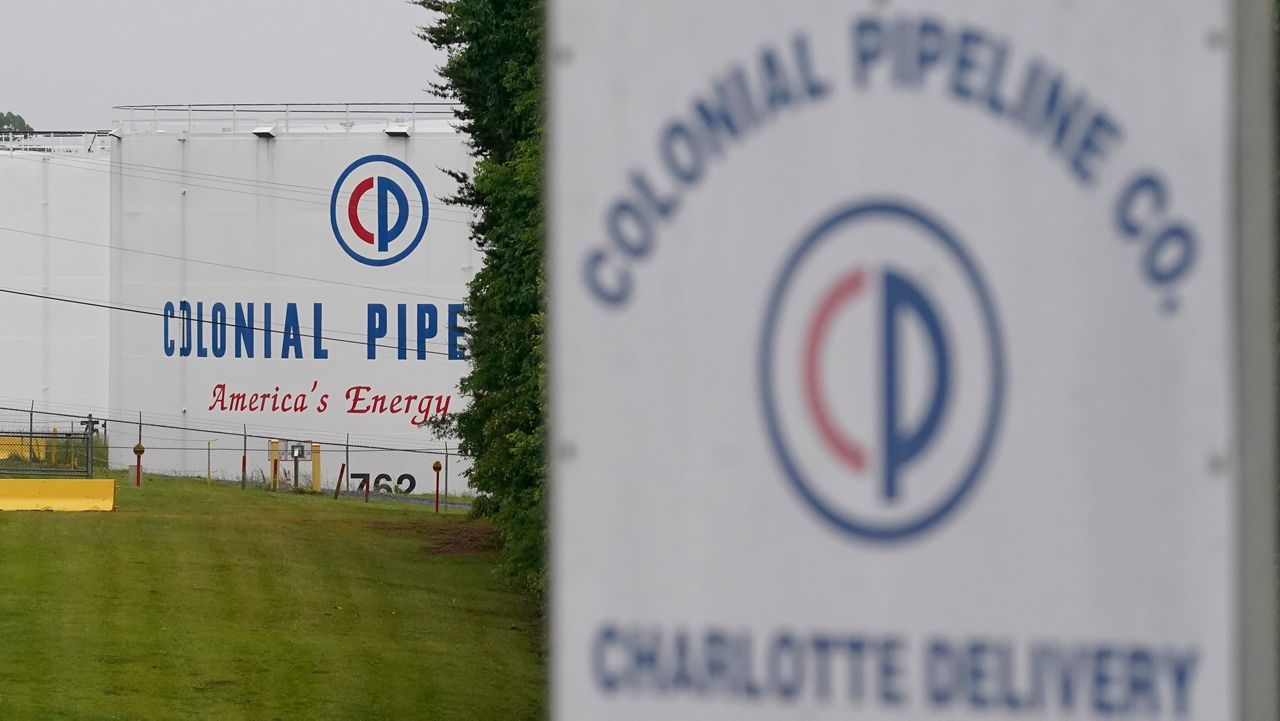RALEIGH, N.C. (AP) — A North Carolina state agency announced Tuesday it has filed a lawsuit seeking to force Colonial Pipeline to meet obligations resulting from a gasoline spill that was found to be far worse than the company initially reported.
What You Need To Know
- The North Carolina Department of Environmental Quality said it filed the 29-page lawsuit in Mecklenburg County Superior Court to force Colonial Pipeline “to meet their obligations as the responsible party in the state’s largest gasoline spill”
- The lawsuit calls on Colonial to take a number of steps, including the removal, treatment or control any source of petroleum, polyfluoroalkyl, also known as PFAS, or other contaminants that have the potential to contaminate groundwater
- In September 2020, Michael Regan, then-secretary of the NCDEQ, said 273,000 gallons of gasoline spilled in Mecklenburg County’s Oehler Nature Preserve near Huntersville, The Charlotte Observer reported. The county had reported the previous month that 63,000 gallons were spilled
- Colonial Pipeline reported to regulators in January that the estimated amount of gasoline released from the underground pipeline was 1,119,982 gallons
In a news release, the North Carolina Department of Environmental Quality said it filed the 29-page lawsuit in Mecklenburg County Superior Court on Monday to force Colonial “to meet their obligations as the responsible party in the state’s largest gasoline spill.”
“Colonial has failed to provide DEQ with essential information required for the appropriate remediation at the site,” the news release said.
The lawsuit calls on Colonial to take a number of steps, including the removal, treatment or control any source of petroleum, polyfluoroalkyl, also known as PFAS, or other contaminants that have the potential to contaminate groundwater. Colonial also must provide the department with a current, revised estimate of the volume of petroleum released, the lawsuit said.
In a statement, Colonial Pipeline said it is reviewing the lawsuit.
“We are committed to working with NCDEQ to address the matters identified and will remain on site for as long as it takes to restore the surrounding environment,” the statement said. “We have made significant progress to date, and remain focused on recovering product as quickly and safely as possible which is in the best interest of the public.”
In September 2020, Michael Regan, then-secretary of the NCDEQ, said 273,000 gallons (1.033 million liters) of gasoline spilled in Mecklenburg County’s Oehler Nature Preserve near Huntersville, The Charlotte Observer reported. The county had reported the previous month that 63,000 gallons (238,455 liters) were spilled.
But Colonial Pipeline reported to regulators in January that the estimated amount of gasoline released from the underground pipeline was 1,119,982 gallons (4.23 million liters).
Huntersville is approximately 15 miles (24 kilometers) north of Charlotte.
“Colonial owes it to the people of North Carolina to cooperate with DEQ and be forthcoming with the information required by our statutes, starting with an accurate estimate of how much fuel was released into the environment,” said Secretary Elizabeth S. Biser. “DEQ is committed to holding Colonial accountable and we now seek a court order directing Colonial to comply with their obligations to cleanup and restore the communities impacted by the release.”
Colonial has recovered more than 1.23 million gallons of petroleum product from the site, according to the news release, but the department says it has failed to provide an updated volume estimate of the release.
The Colonial Pipeline, which delivers about 45% of the fuel consumed on the East Coast, was hit in May with a cyberattack by hackers who locked up computer systems and demanded a ransom to unlock them. The hackers did not gain control of the pipeline operations, but Colonial shut the pipeline down to contain the damage.
The disruption of Colonial Pipeline caused long lines at gas stations in the Southeast due to distribution problems and panic-buying, draining supplies at thousands of gas stations.



